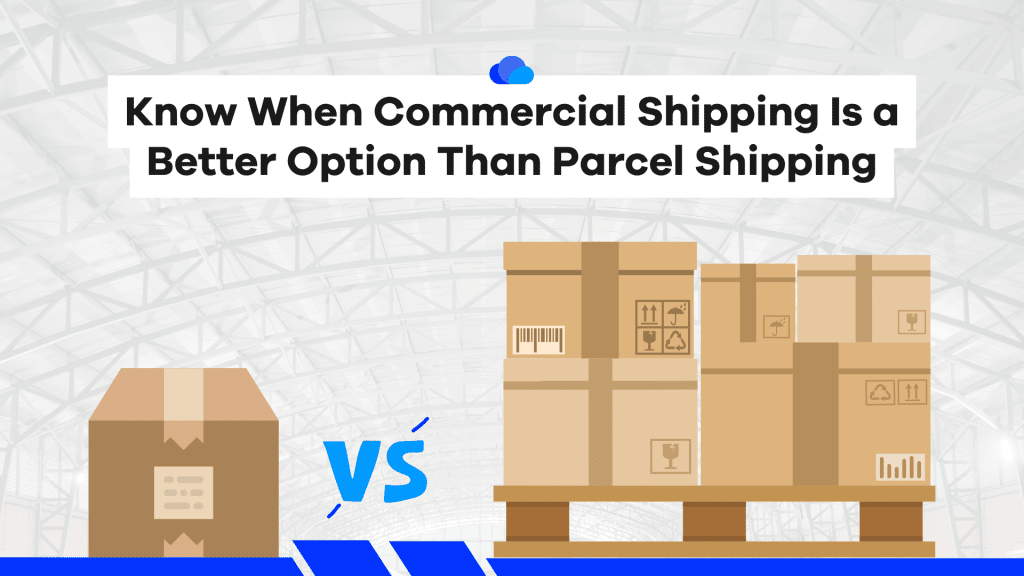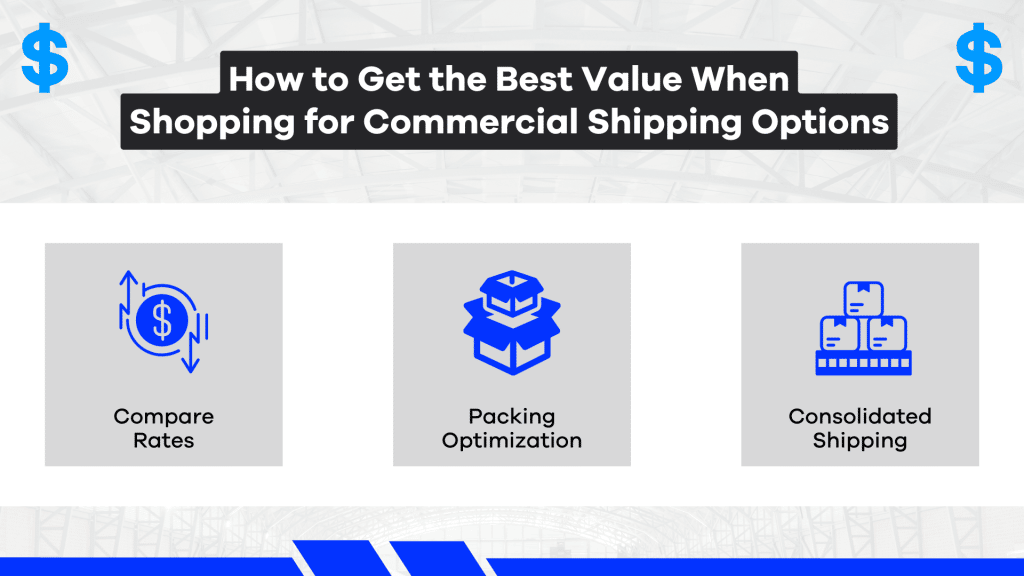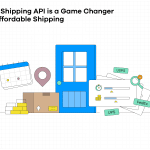
Shipping is one of the most critical pieces of your ecommerce business plan. It’s how you get the needed stock, move inventory between your warehouses, and fulfill customer orders. That said, not all shipping services are created equal. The parcel shipping options you offer customers at checkout are probably not the ideal shipping partners for your bulk freight needs.
Commercial shipping is often the simpler and more cost-effective shipping method when shipping to warehouses (regardless of whether they’re yours or your 3PL partners’) or to other businesses. Descartes Sellercloud features integrations with all of the top domestic and international shipping providers to ensure that you always have access to the most reliable and cost-effective options for your parcel and business shipping needs.
The Differences Between Commercial Shipping and Parcel Shipping Matter
While you technically could use parcel shipping to transfer large volumes of merchandise to third-party fulfillment centers or between warehouses, it is far from the ideal solution. Commercial freight shipping is a much more cost-effective and efficient way to move inventory in bulk. The reasons lie in the differences between the two service types.
When to Use Commercial Shipping?
Heavy Shipments
Commercial shipping is usually the only option for shipping products or combinations weighing over 150 pounds. Furthermore, most parcel shipping providers begin assessing additional fees for products weighing over 70 pounds. As such, commercial shipping is almost always more cost-effective for overweight shipments.
Large Volume Shipments
For large, bulky, awkward volume shipments, commercial shipping typically provides better rates than parcel shipping. Most parcel shipping services have a hard cap on volume and maximum package length. Like weight, there are upcharges and significant price increases that kick in long before packages reach these hard caps.
Inventory That Requires Specialty Loading/Unloading
Commercial shipping companies have the equipment, personnel, and protocols to load and unload large, heavy, and/or delicate freight. While you may end up paying for the service, parcel shipping providers will unlikely offer this option.
Palletized Shipments
If your shipments are palletized and wrapped, commercial shipping is the best option. Moreover, by palletizing your inventory before shipment, you can always take advantage of significant commercial shipping cost savings.
Shipping a Container’s Worth of Inventory
Much like how the same volume of merchandise will ship for a lower cost when it is palletized, shipping a full container’s worth of goods can be a great option for enjoying bulk shipping discounts through a commercial provider.
When to Use Parcel Shipping?
Lightweight Shipments
Any shipment with a total weight under 70 pounds (or the weight at which a carrier begins charging overweight upcharges) may be best suited for parcel shipping. You may want to at least assess the costs for any shipments under 150 pounds, but in all likelihood, commercial shipping will be the better value, the greater the weight.
Low-Volume Shipments
If your total shipping volume falls within your preferred parcel carrier’s girth and length thresholds, it may be worth comparing parcel shipping rates to commercial alternatives. As a rule, any bulk shipment that cannot be palletized should be considered for pallet shipping before making a final decision.
Multiple Destinations
Even if you are moving a lot of inventory, when there are multiple destinations, parcel shipping may be the best fit. Commercial shipping is perfect for moving many products from point A to point B. However, the entire parcel shipping business model is centered around delivering individual packages to any and all addresses.
Speed Matters
Parcel shipping options are typically faster than commercial options. If you need to move merchandise or inventory quickly, parcel shipping may be the most reliable option. Moreover, many parcel shipping providers offer services with guaranteed delivery times to provide extra assurance and peace of mind.

How to Get the Best Value When Shopping for Commercial Shipping Options?
Just because commercial shipping may turn out to be a better value than parcel shipping for certain shipments doesn’t mean that there aren’t further opportunities for savings. If you have decided that commercial shipping is the right fit, there are several ways to reduce costs.
Compare Rates
This is the most obvious starting point when evaluating potential commercial shipping providers. The terms and prices will vary by carrier and their respective rate cards. In addition, carriers’ shipping rates and speeds can fluctuate over time.
When scale is considered, small price differences can lead to significant profit margin fluctuations. Even a difference of a few pennies per pound can have a meaningful impact on your bottom line. As such, regularly review your commercial shipping rates and compare them to industry alternatives. It is important to remain flexible in your shipping options.
Descartes Sellercloud makes it simple to utilize multiple shipping providers, which gives you the flexibility to make profit-driven decisions in response to changes in shipping costs.
Packing Optimization
Reducing waste and unnecessary packaging size can help lead to dramatic shipping cost savings for commercial and parcel fulfillment. For this reason, optimizing your product packaging and shipment packing should be a priority.
Consolidated Shipping
Similar to packing optimization, consolidated shipping can reduce costs further. Any time you can ensure that a bulk shipment is large enough to be palletized or fill an entire shipping container, you can almost guarantee significant savings.
There are considerations associated with consolidated shipping you cannot overlook, though. Check out our full guide to reducing shipping costs with consolidated shipping.
Descartes Sellercloud’s omnichannel growth platform is the ideal partner for managing your ecommerce shipping needs. Contact us directly for a free demo to see how our software and modules can help you consolidate and optimize workflows across your entire business.




